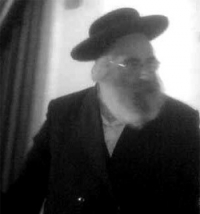By Samuel Newhouse
Brooklyn Daily Eagle
October 6, 2010
http://www.brooklyneagle.com/categories/category.php?category_id=4&id=38583
 |
An Orthodox Jewish child molester who was sentenced to a maximum of 30 years earlier this year appeared in Brooklyn Supreme Court Wednesday for a pretrial hearing in yet another case of alleged sexual abuse of a minor.
Baruch Lebovits, 59, of Borough Park, who was convicted of sexually molesting a teenager in his community, appeared before Kings County Supreme Court Justice Patricia Di Mango, the same Brooklyn judge who sentenced him in April to 10 2/3 to 32 years in prison.
Justice Di Mango gave Lebovits the maximum sentence for each of eight counts of abusing a 16-year-old Borough Park resident, whom Lebovits lured on several occasions in 2004 and 2005 to his silver Toyota for “driving lessons” before performing oral sex on the victim, who was a friend of Lebovits’ son.
Now Lebovits has at least one more active sexual abuse case and could face even more indictments, as several alleged victims came forward after Lebovits was sentenced. Sources in law enforcement have called the crimes Lebovits has been charged with “the tip of the iceberg.”
One alleged victim said Lebovits fondled him in a mikvah or ritual bath while the victim was a teen, but made the claim after being arrested himself for allegedly fondling a 12-year-old in a mikvah, according to the Daily News.
Despite these allegations, Lebovits, a cantor (traditional Jewish singer) and a local teacher, still has some supporters in the community. But the father of the victim whose testimony led to Lebovits’ April sentence has called Lebovits a “grand-molester.”
The landmark case shined a light on sexual abuse in Brooklyn’s Orthodox Jewish communities, where it is believed that many crimes go unreported due to community solidarity and religious pressure. Some Orthodox Jews say they don’t believe that secular courts treat them fairly.
The Brooklyn Eagle ran an investigative report on the Lebovits case and how the Hasidic communities are dealing with allegations of sexual abuse, entitled “Unprecedented Case Brings Brooklyn Rabbi To Secular Court To Be Sentenced,” published online at BrooklynEagle.com on April 12, 2010.
In Lebovits’ trial, prosecutors asked witnesses about rules against mesirah or informing. A witness told the court that a Jewish man is not allowed to go to a secular court against another Jew without the permission of his rabbi.
Brooklyn defense attorney Arthur Aidala unsuccessfully argued at Lebovits’ trial this year that the allegations were part of a blackmail scheme by the victim, now in his early 20s, who admitted to battling a drug addiction.
Aidala is reportedly appealing the sentence on the grounds that Lebovits was unfairly punished with a harsh sentence for turning down a plea bargain that included a 16-month to 4-year sentence — the maximum sentence for just one count of sexual abuse.
At the time of his conviction for molesting that individual, Lebovits also had charges pending from two other alleged molestations: one for allegedly molesting an 18-year-old man who said Lebovits attacked him in a car when he was 16, and another based on reports from a 22-year-old man who said Lebovits abused him while he was aged 12 to 16.
Lebovits reportedly decided to go to trial on both the other cases. According to the court system database, a 20-month to eight-year prison sentence for Lebovits was entered for one of those cases, although it was not immediately clear which case is continuing and which was resolved.
He also has some apparent detractors. There is a Twitter account — @Kmarnarabbi — that lists Lebovits’ name and bears his photograph, but most of its tweets seem to be publicizing Lebovits’ criminal cases. Lebovits’ current case was adjourned to Oct. 14 after Wednesday’s hearing.
Contact: sam@brooklyneagle.net
Any original material on these pages is copyright © BishopAccountability.org 2004. Reproduce freely with attribution.